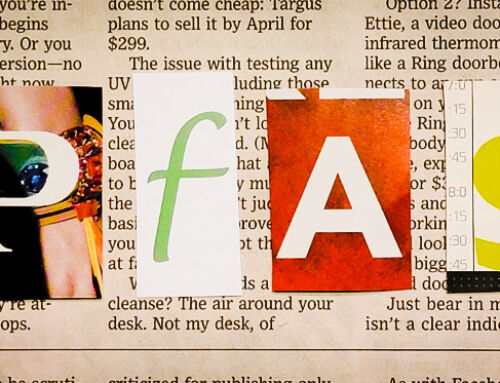View by Topic
Recent Articles
-
New Environmental Laws from the 2024 Maryland Legislative SessionSaturday, April 27th, 2024
-
EPA Designates PFOA and PFOS as Hazardous Substances under Superfund LawSaturday, April 20th, 2024
-
Federal Government Finalizes New Efficiency Standards for LightbulbsSaturday, April 13th, 2024
-
2024 IECC is Final After Addressing Preemption IssuesSaturday, April 6th, 2024
-
Settlement Portends Broad Failure in Attempts to Ban Natural GasSaturday, March 30th, 2024
View by Month/Year
“Green Building Law Update” Headlines
Recent Articles & News from
Stuart Kaplow’s blog
at GreenBuildingLawUpdate.com
- New Environmental Laws in Maryland: 2024 Brings Opportunities for Businesses April 28, 2024
- EPA Takes Action: PFOA and PFOS Now Hazardous Substances Under Superfund Law April 21, 2024
- Shedding Light on the Future: The Evolution of Lightbulbs in the Wake of New Energy Efficiency Standards April 14, 2024
- 2024 International Energy Conservation Code is Final After Addressing Preemption April 7, 2024
Subscribe to the Green Building Law Update!
Stuart Kaplow brings his expertise and extensive experience to the table with his unique digital publication, "Green Building Law Update". Subscribers receive regular updates to keep them informed about important issues surrounding Environmental Law, Green Building & Real Estate Law, as well as the emerging demand for Environmental Social Governance (ESG).
Get fresh content through the lense of Stuart Kaplow's cutting-edge expertise, innovative commentary and insider perspective. Don't miss another issue! Subscribe below.

Guidance on Avoiding Greenwashing while Providing Input Down Under
The Australian government has issued draft Environmental and Sustainability Guidance describing the obligations under Australian consumer law which businesses must comply with when making environmental and sustainability claims.
The Guidance released on July 14, 2023, sets out what the Australian Competition & Consumer Commission considers to be good practice when making such claims, to help businesses provide clear, accurate, and trustworthy information to consumers about the environmental performance of their business.
The Guidance is hugely instructive not only for companies that engage in business in Australia but given the global nature of commerce, to companies worldwide, including those in the United States; and in particular at a time when companies doing business in the U.S. do not have the benefit of the out of date, and in many respects no longer useful, Federal Trade Commission Green Guides for Environmental Claims last updated in 2012.
As we described in our recent post, H&M Wins Dismissal of Greenwashing Lawsuit, in an era when allegations of greenwashing are de rigueur it is significant to note, properly vetted and drafted environmental marketing disclosures can successfully withstand a challenge. This Guidance provides a literal checklist for that vetting.
Environmental or sustainability claims will only help consumers make informed purchasing decisions if the claims are clear, are not misleading, and do not omit relevant information. A misleading, meaningless, or unclear claim, no matter whether made for marketing purposes or as a required government disclosure, breaches consumer trust and hurts confidence in both the claim itself and sustainability claims in general.
Businesses genuinely pursuing more sustainable products and services often incur additional research or production costs. This fact combined with consumers’ increasing interest in purchasing sustainable products results in false or misleading sustainability claims unfairly disadvantage businesses making genuine claims. This undermines effective competition and can create a disincentive for businesses to invest in sustainability.
In preparation for this updating of the then existing 2011 Guidance, the ACCC conducted a sweep of environmental claims finding that of the 247 businesses across a wide range of sectors viewed with a presence on the Internet, 57% of those businesses have potentially made misleading and deceptive environmental or sustainability claims. Companies making vague and unqualified claims topped the list of most common issues, with many businesses describing their products as “green”, “kind to the planet”, “eco-friendly”, “responsible” or “sustainable”. Of the sectors studied in the sweep, cosmetic, clothing and footwear, and food and drink industries had the highest proportion of concerning claims.
The Guidance released from Canberra articulates the following principles and then provides real world examples:
Principle 1: Make accurate and truthful claims
Principle 2: Have evidence to back up your claims
Principle 3: Don’t leave out or hide important information
Principle 4: Explain any conditions or qualifications on your claims
Principle 5: Avoid broad and unqualified claims
Principle 6: Use clear and easy-to-understand language
Principle 7: Visual elements should not give the wrong impression
Principle 8: Be direct and open about your sustainability transition
All businesses, Australian or not, can learn a great deal about mitigating risk in making environmental claims from this new document and, in fact, use it as a checklist.
Moreover, additional information can be garnered from participating in the ACCC online survey, available through September 15, 2023, being conducted so that the agency can assess common difficulties businesses face when making environmental claims before finalizing the Guidance, but also as part of the education process for businesses. Participate in the Aussie online survey here.
Legal experts warn the number of greenwashing claims will continue to grow in the coming years. With the ever expanding support for a transition to a decarbonized economy to solve problems relating to climate change, emissions reduction, recyclability, and the like, consumers are increasingly interested in purchasing sustainable or environmentally friendly products and services. Concomitantly, the use of environmental and sustainability claims, today estimated at more than $240 Billion annually, will continue to be increasingly utilized in advertising.
Sustainability is a topic of importance not only in Australia but internationally and certainly including in the U.S. We have chosen to blog about this legal development some 10,000 miles away, not only because of the surprise that more than half of Australian businesses reviewed were found to have made misleading environmental claims but because assisting businesses in mitigating risk from greenwashing claims (.. often an innocent misrepresentation by a company associated with genuinely pursuing some sustainable action) has become a significant part of what we do.
While American businesses continue to wait for the update to the 2012 FTC Green Guides this draft Guidance from Down Under is the best checklist, we are aware of, for mitigating the risk of greenwashing claims.
A live webinar “Offsets and RECs for Reducing Your GHGs” 30 talking points in 30 minutes, Tuesday, August 15 at 9 am ET presented by Stuart Kaplow and Nancy Hudes on behalf of ESG Legal Solutions, LLC. The webinar is complimentary, but you must register here.









